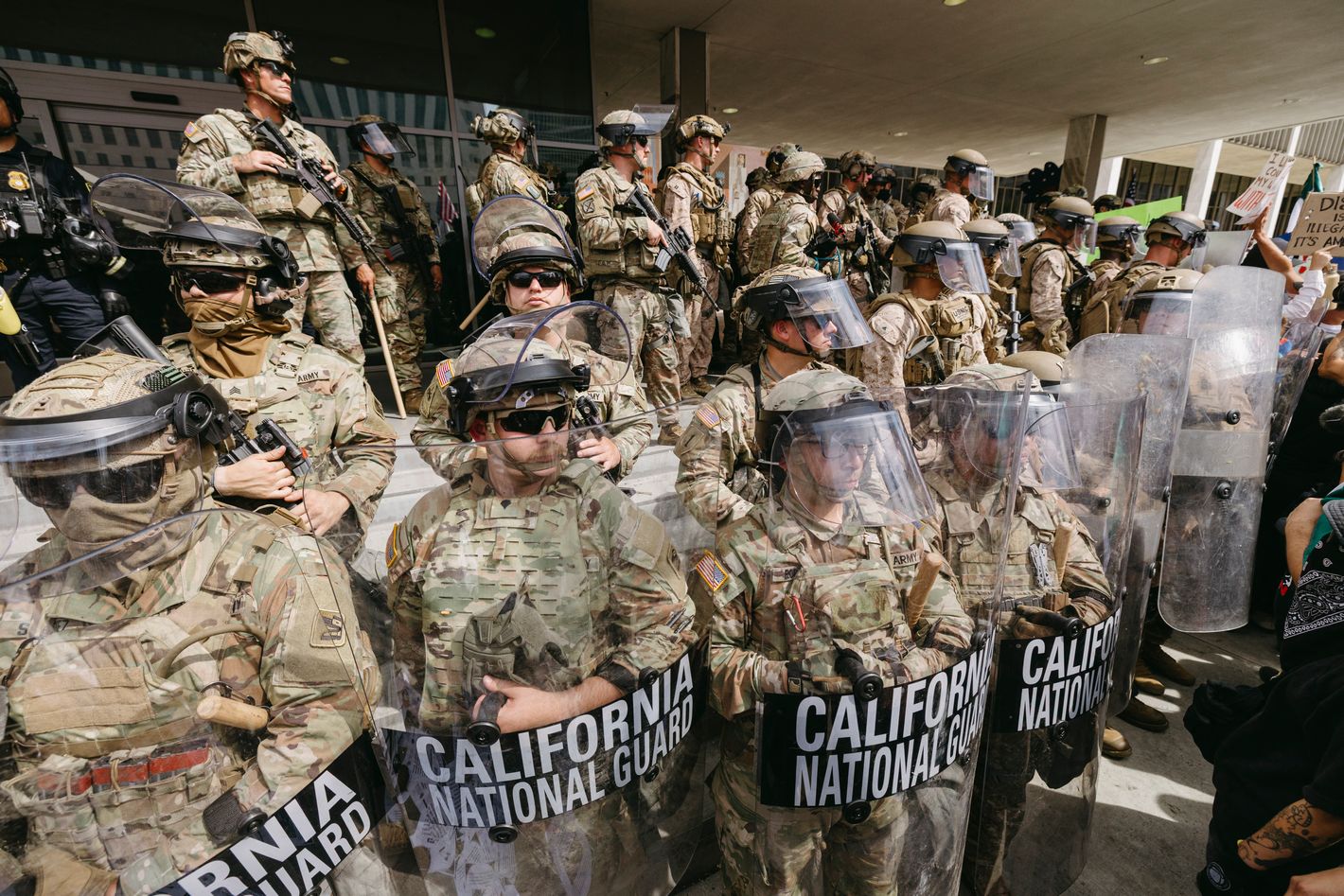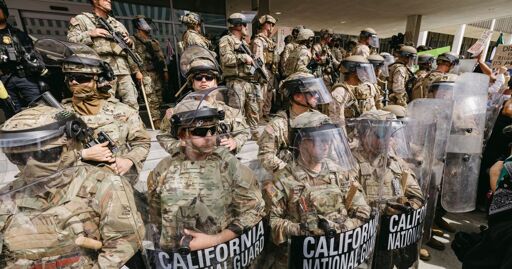
Photo: David Pashaee/Middle East Images/AFP/Getty Images
It’s been reasonably clear for a while that immigration and crime are Donald Trump’s two best (relatively speaking) issues in a second-term agenda that is generally quite unpopular. These are also issues that tend to excite the MAGA base, particularly since the Trump-Vance campaign relentlessly combined them during the 2024 presidential election to suggest America was drowning in an immigrant-driven national crime wave.
The intersection of these “law and order” issues has now taken on a whole new importance during the administration’s campaign to send federal and state military assets into Democratic-governed cities to crack down on crime. In two cases, Washington, D.C., and Memphis, the rationale for using National Guard units was the specious argument that violent crime was out of control. It mattered a great deal that the president already had significant law-enforcement powers in D.C., and that he was able to talk political allies in Tennessee into asking for an intervention that he had clearly decided on earlier. But when it came to deployment of troops in states controlled by Democrats who would not validate the “crime wave” talk, the administration has chosen a different strategy: treating any protest against ICE’s mass-deportation tactics as itself constituting a “crime wave” that only the Feds could combat, against the wishes of both state and local authorities.
“Protecting” ICE agents was the legal and political rationale for the fateful experiment the administration initiated in the Los Angeles area this spring. Now it’s being used to justify an attempted deployment of Oregon and California National Guard units in Portland and an impending deployment of Texas Guard units in Chicago. A federal district court judge (one appointed by Trump, believe it or not) in Oregon put at least a temporary kibosh on the Portland takeover. But what was interesting about Judge Karin Immergut’s ruling is that she challenged the underlying premise that ICE needed armed military protection in the first place, as the New York Times reports:
Judge Immergut wrote on Saturday that the protests in Portland, which have been generally small, “were not significantly violent or disruptive” and that she expected a trial court to agree with the state’s contention that the president had exceeded his constitutional authority.
For the same reason, the judge subsequently blocked administration maneuvers to send federalized California Guard units, and then Texas Guard units offered by Governor Greg Abbott, to Portland. She refused to leave the determination of necessity in the hands of Stephen Miller and Tom Homan, in other words. As the Times observed, there wasn’t much of a case for sending in the troops, or for Trump’s assertions that “Portland is burning.”
On Sunday, residents and tourists in the city were largely reveling in a sunny fall morning, playing fetch with their dogs in neighborhood parks, standing in long lines for brunch and crowding downtown sidewalks to cheer on runners in the annual city marathon. Outside the ICE facility in Southwest Portland, two miles from the central city, about 70 protesters chanted, barbecued and passed out bottled water as passing motorists honked in mutual disapproval of the Trump administration.
“There are more people filming each other than there are rabble-rousers,” said Alex Knots, 58, a demonstrator who said he works in the tech industry.
The administration has appealed Immergut’s rulings to the Ninth Circuit, and it may win. But it’s significant that a federal judge is looking behind the curtain at the Trump’s perpetual declarations that any opposition to his wishes represents an emergency, triggering special executive powers. This could be the key to at least a modicum of judicial restraint on the rampant law-and-order president.
Politically, however, the administration will surely continue to probe the boundaries of judicial tolerance at his power grabs on the grounds that the public (or close to half of it) wants strong-man conduct to deal with perceived out-of-control immigration and crime. If Democrats want to stimulate an effective backlash to the ongoing military takeover of U.S. cities, they need to do more than articulate legal arguments for state and local control over law enforcement, while challenging ICE’s provocative excesses. They need their own credible positions on immigration and crime instead of perpetually changing the subject to “turf” they consider safer. The public is already wary of GOP overreach on immigration, and of the GOP’s structural inability to address gun violence other that by arming the population to the teeth in the vain hope that vigilantes will protect us. Voters need alternatives to authoritarianism as strategies for enforcing the law and maintaining order.
From Intelligencer - Daily News, Politics, Business, and Tech via this RSS feed

